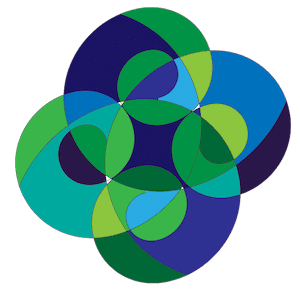The Examination of Consciousness
The Examen, also called the Examination of Conscience or Examination of Consciousness (learned that last one from a Dominican Sister), is the last of the writing practices I’ll go over in this week’s posts.
 Unlike writing Morning Pages, journaling, or gratitude lists, the Examination of Consciousness is done in the evening. It has a specific time of day, and that time is just before bed. At its simplest, it is a review of the day past, not an orientation for the day to come.
Unlike writing Morning Pages, journaling, or gratitude lists, the Examination of Consciousness is done in the evening. It has a specific time of day, and that time is just before bed. At its simplest, it is a review of the day past, not an orientation for the day to come.
Originally a Jesuit discipline, and for many years practiced almost exclusively by Roman Catholics, the Examination of Consciousness has become more and more broadly popular as a spiritual exercise. Particularly as formal spiritual direction has become more popular (also a Roman Catholic practice that has spread far beyond that church’s borders), the Examination of Consciousness has gone along with it.
Quakers, Jews, Muslims…these are some of the religious people I know who have some form of evening review and prayer.
And as I said, the Examination of Consciousness is one way of evening prayer. Of reviewing the day past, seeing what merits joy and gratitude, what one wishes had gone differently, what needs forgiveness, and how one intends to persist in living a good life.
But how does it work?
Opening: Prayer
The Examination of Consciousness is, at its root, an extended method of prayer. So it makes sense to open the exercise with a prayer of one’s own, a petition to see clearly and honestly, to live with integrity, not to shrink from either the easy or difficult, the abundance or lack, the virtue or failings in one’s character.
 The opening is a prayer for discernment. In Ignatian/Jesuit terms, the original wording was “discernment of spirits,” but that doesn’t speak to me, nor to many of the folks who work with me. “Discernment” is fine. Clarity of mind. Courage to perceive and take in what one finds in one’s day. And most of all, willingness to engage the truth.
The opening is a prayer for discernment. In Ignatian/Jesuit terms, the original wording was “discernment of spirits,” but that doesn’t speak to me, nor to many of the folks who work with me. “Discernment” is fine. Clarity of mind. Courage to perceive and take in what one finds in one’s day. And most of all, willingness to engage the truth.
Just close your eyes, take a few breaths, and ask for help. From your Deepest, Wisest Self, from God Herself, from Whom or Whatever you derive sustenance
Review
Next we come to the day’s review.
Begin at the beginning. How was your waking up? What affected it? Had you slept well? Do you remember any of your dreams? What did you think when the alarm went off, if you use an alarm?
Did you do your morning routine? How did it go? Do you engage any morning spiritual practices? If so, did you do them, and did you experience any insights or fruits from them during the day?
How did you spend your day? Do you go somewhere to work? Did you see many people in your day? Whom did you see, and how did you treat them?
Go on in this fashion right up until the moment you began your Examination. And then simply sit with the knowledge you have turned over in your review of your day.
When I first began doing the Examination of Consciousness, I thought it would be very difficult to remember details of my day.
I thought, “Goodness, I have no idea what I did when I woke up,” but when I thought about it a bit more, I found that was false. I absolutely could recall details about my day.
Not only that, but, just as with recording dreams, the more you do the Examination, the easier and richer the review becomes.
So now that you’ve reviewed your day, what next?
Gratitude?
In my last post, I wrote about how I believe no one should ever tell another that they must be grateful for some particular thing. I maintain that position.
Nonetheless, I also maintain that the Examination and its attendant question about gratitude are helpful.
 The question is simply, “For what am I grateful?” The day has been full, or not, and there are likely things that have gone well. The working of my body, though it often frustrates me, nonetheless does what I need it to do. My lungs breathe, my heart pumps, my body moves, my brain works (at least a little!)…before my feet hit the floor in the morning, so much has already had to go right!
The question is simply, “For what am I grateful?” The day has been full, or not, and there are likely things that have gone well. The working of my body, though it often frustrates me, nonetheless does what I need it to do. My lungs breathe, my heart pumps, my body moves, my brain works (at least a little!)…before my feet hit the floor in the morning, so much has already had to go right!
For what am I grateful? In this day past, in these things I have done and not done, in these things I have perceived, today, for what am I grateful?
Write them down, these things. Write your gratitude. Express it to yourself on paper, in a book where you keep these records of your days.
Forgiveness?
But a day does not only comprise things for which we are grateful. We fail, make false steps, and do things we might regret. Not only that, but others may have hurt us, made false steps, done things we would regret if we were in their shoes.
So the question becomes, “What needs forgiveness?” In this day, at this time, on this evening as I review these actions, reactions or responses, thoughts, and beliefs.
Others may have done things that might “require” forgiveness. And we may have, as well. We may need our own forgiveness.
But in my book, I cannot compel forgiveness. I cannot compel myself to forgive where forgiveness is not. I may pray for forgiveness; I may pray to be able to forgive others, and I may pray to be able to forgive myself.
The question is not a statement: Forgive what needs forgiving.
No.
The question is about the state of your heart. What needs forgiveness, as far as you are concerned? And again, write them down. Write your forgiveness and your unforgiveness. Let your writing be a place you begin to work towards your Deepest, Wisest Self.
Contemplation
Allow yourself just to be with these questions, with this review of your day, with the way you have ordered your thoughts.
Be with all of it.
Be with all.
Be.
Closing: Prayer
After you have allowed yourself that time. Give yourself the gift of a closing prayer. Let the day go, as one might release a bird held gently in your hands. Just open your hands, and the bird will fly.
Similarly, be finished with the day. Be finished. Close the book. Put the pen away.
You have absolutely done the best you could with the tools you had at hand. There is no other way to be. We do our best with what is at hand. If we need new tools, that we apply ourselves to getting them: Skills, outlooks, knowledge, whatever we need.
But for now, for today, you have done the best you could.
That famous Unitarian, Ralph Waldo Emerson reminds of us of this letting go. And with his quotation, I shall let us go:
“Finish each day and be done with it. You have done what you could. Some blunders and absurdities no doubt crept in; forget them as soon as you can. Tomorrow is a new day. You shall begin it serenely and with too high a spirit to be encumbered with your old nonsense.”


